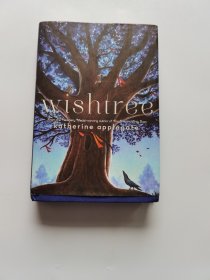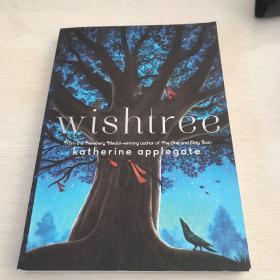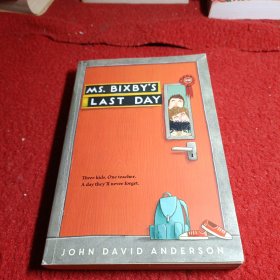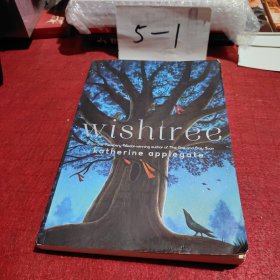
【预订】Demystifying Disability
书籍内容简介可联系客服查阅,查书找书开票同样可以联系客服
¥ 108 ¥ 108 九五品
仅1件
广东广州
认证卖家担保交易快速发货售后保障
作者Emily Ladau
出版社Clarkson Potter/Ten Speed
ISBN9781984858979
出版时间2021-09
装帧平装
定价108元
货号YB-88821
上书时间2024-06-29
- 最新上架
商品详情
- 品相描述:九五品
- 商品描述
-
商品简介
An approachable guide to being a thoughtful, informed ally to disabled people, with actionable steps for what to say and do (and what not to do) and how you can help make the world a more inclusive place
ONE OF THE BEST BOOKS OF THE YEAR: NPR, Booklist • “A candid, accessible cheat sheet for anyone who wants to thoughtfully join the conversation . . . Emily makes the intimidating approachable and the complicated clear.”—Rebekah Taussig, author of Sitting Pretty: The View from My Ordinary, Resilient, Disabled Body
People with disabilities are the world’s largest minority, an estimated 15 percent of the global population. But many of us—disabled and nondisabled alike—don’t know how to act, what to say, or how to be an ally to the disability community. Demystifying Disability is a friendly handbook on the important disability issues you need to know about, including:
• How to appropriately think, talk, and ask about disability
• Recognizing and avoiding ableism (discrimination toward disabled people)
• Practicing good disability etiquette
• Ensuring accessibility becomes your standard practice, from everyday communication to planning special events
• Appreciating disability history and identity
• Identifying and speaking up about disability stereotypes in media
Authored by celebrated disability rights advocate, speaker, and writer Emily Ladau, this practical, intersectional guide offers all readers a welcoming place to understand disability as part of the human experience.
Praise for Demystifying Disability
“Whether you have a disability, or you are non-disabled, Demystifying Disability is a MUST READ. Emily Ladau is a wise spirit who thinks deeply and writes exquisitely.”—Judy Heumann, international disability rights advocate and author of Being Heumann
“Emily Ladau has done her homework, and Demystifying Disability is her candid, accessible cheat sheet for anyone who wants to thoughtfully join the conversation. A teacher who makes you forget you’re learning, Emily makes the intimidating approachable and the complicated clear. This book is a generous and needed gift.”—Rebekah Taussig, author of Sitting Pretty: The View from My Ordinary Resilient Disabled Body
一本平易近人的指南,帮助您成为残疾人的深思熟虑、见多识广的盟友,并提供关于该说什么、做什么(以及不该做什么)以及如何帮助创造世界的可行步骤一个更具包容性的地方
年度最佳图书之一:NPR,图书列表 • “对于任何想要深思熟虑地加入对话的人来说,这是一份坦诚、易于理解的备忘单。 。 。艾米丽让令人生畏的事情变得平易近人,让复杂的事情变得清晰。”—Rebekah Taussig,坐得漂亮:从我普通、有弹性、残疾的身体中看到的观点
人物残疾人是世界上最大的少数群体,估计占全球人口的 15%。但我们中的许多人——无论是残疾人还是非残疾人——都不知道如何行动、说什么,或者如何成为残疾人社区的盟友。 揭秘残疾是一本友好的手册,介绍了您需要了解的重要残疾问题,包括:
•如何适当地思考、谈论和询问残疾问题
•认识并避免体能歧视(对残疾人的歧视)
•实践良好的残疾礼仪
•从日常沟通到规划特别活动,确保无障碍成为您的标准做法
•欣赏残疾历史和身份
•识别并谈论媒体中对残疾的刻板印象
由著名的残疾人权利倡导者、演讲者和作家 Emily Ladau 撰写,这本实用的交叉指南为所有读者提供了一个了解残疾的好地方作为人类经验的一部分。
赞扬揭开残疾的神秘面纱
“无论您有残疾,还是非-残疾人,揭秘残疾是必读的。艾米丽·拉道 (Emily Ladau) 是一位睿智的人,思考深刻,文笔优美。&rd;—朱迪·休曼 (Judy Heumann),国际残疾人权利倡导者,《成为休曼》(Being Heumann)
“艾米丽·拉多 (Emily Ladau) 已经完成了她的功课,《揭秘残疾》是她为任何想要深思熟虑地加入对话的人提供的坦诚、易于理解的备忘单。艾米丽是一位让你忘记自己正在学习的老师,她让令人生畏的事情变得平易近人,让复杂的事情变得清晰。这本书是一份慷慨且必要的礼物。”—Rebekah Taussig,坐得漂亮:我普通的有弹性的残疾身体的看法
作者简介
Emily Ladau is an internationally known disability rights activist, writer, and speaker. She is the editor in chief of the Rooted in Rights blog, a platform dedicated to amplifying authentic narratives of the intersectional disability experience. She also co-hosts The Accessible Stall, a podcast about disability issues. Ladau's writing has been published in outlets including the New York Times, HuffPost, CNN, Self, Salon, Vice, The Daily Beast, Variety, and Marie Claire Australia. Her work is also included in the Criptiques Anthology and About Us: Essays from the Disability Series of the New York Times. She has served as an expert source on disability issues for outlets including NPR, Vox, Washington Post, and Teen Vogue, and has been featured in a range of press outlets including Newsday, BuzzFeed, CBS News, and U.S. News & World Report.
精彩内容
Introduction:
Why Do We Need to Demystify Disability?
One billion. More than one billion people around the world are disabled. In fact, we’re the world’s largest minority. Statistically speaking, there’s a good chance this book is relevant to you. To narrow things down a little more, let’s do a quick gut check.
Have you ever tried to talk about disability and found yourself flustered over what words to use?
Have you ever shushed your kid for asking “what’s wrong” with a person who was using wheelchair?
Have you ever shared a news story about a disabled person on social media because you felt warm and fuzzy after reading it?
Have you ever compared yourself to someone with a disability to make yourself feel better about your own life?
If your response was “yes” to any of these, don’t stress. I’m not here to judge. Consider this book a safe space to learn and find answers to certain questions you might have but aren’t sure how to ask.
It’s pretty common for the mere mention of the word disability to evoke fear, confusion, and an endless stream of misconceptions. And often, people don’t realize their own biases. There’s much work yet to be done to change hearts and minds—or, at the very least, to get nondisabled people to stop treating disabled people as a weird cross between precious gems and alien creatures. And I am one of the many disabled people who are passionate about doing such work.
So, a little about me: I have multiple disabilities, including a physical disability, a hearing disability, and mental health disabilities. I use a wheelchair because I was born with Larsen syndrome (LS), a joint and muscle disorder that I inherited from my mom, Ellen, who also has it. You might think that our both having LS is a tragedy, but we don’t. In my humble opinion, it’s pretty fantastic to have someone built into my life who just gets me. But I know my mom didn’t always feel this way. When she and my dad, Marc, were considering having a baby, they sought out genetic counseling and were reassured that my mom wouldn’t pass on LS. Midway through the pregnancy, though, an ultrasound showed otherwise. My mom was absolutely overcome with guilt, fearing the worst for me and worrying that I’d resent her. And even though that couldn’t be further from the truth, I don’t blame her for these concerns. Society was even less disability-friendly while my mom was growing up than it is now. And once, when I was a baby, a woman was staring at us because she noticed our disabilities, and my mom overheard her say, “Look at what that mom did to her baby.” That rude comment left a sting that’s never gone away.
Even so, in the years since my birth, there’s been a continued shift toward greater acceptance and understanding of disability.
But all of us—nondisabled and disabled people alike—have more to learn about how to make the world a better, more accessible, more inclusive place. So how do we do this? There’s a philosophy I’ve come to embrace that informs everything I do:
If the disability community wants a world that’s accessible to us, then we must make ideas and experiences of disability accessible to the world.
How can we expect understanding and acceptance of disability if we aren’t willing to share our insights and our stories? I recognize this isn’t always a popular line of thought among many disabled people. Educating others about the nuances of your daily life is a heck of a lot of work, and it can take an emotional toll—especially when there’s pushback, or the people who need to learn just won’t listen. It makes sense not to want to live our lives moving from one teachable moment to the next. We’d prefer to just live our lives, period.
However, the reality is that we’re not quite there yet. Whether I’m out and about in the world at large or just aimlessly scrolling through social media, I’m on high alert for ableism, stereotypes, stigma, and discrimination toward disabled people—and there is a lot of it to be found. So, for now, I believe that offering honest and sincere guidance and conversation remains a key part of the path forward for the disability community. That’s how progress has been made by the powerhouse disability activists who have come before me. It’s how we will continue forward. And if one person who reads this book thinks better of using disability as a slur or insult, or calls their representatives to advocate for a disability issue, or adds a ramp to the entrance of their shop, then we’re moving in the right direction.
There’s No Test at the End
This book is a 101 on certain aspects of disability for anyone seeking to deepen their understanding and be a stronger ally, regardless of whether they identify as disabled. Use it as a reference, a resource, a jumping-off point, or a conversation starter. But remember, this isn’t a textbook or an exhaustive encyclopedia of disability. I’m not an academic, and I won’t be subjecting you to a pop quiz on what you’ve read
相关推荐
— 没有更多了 —






















以下为对购买帮助不大的评价